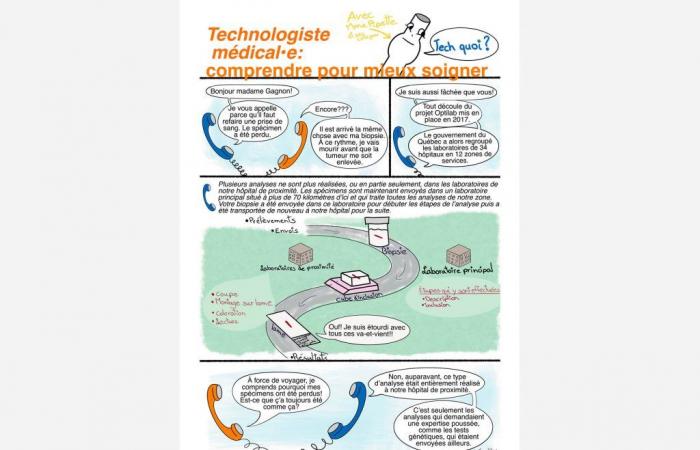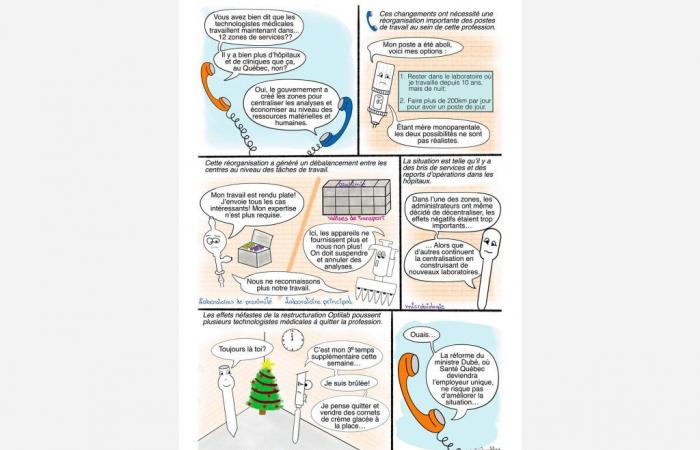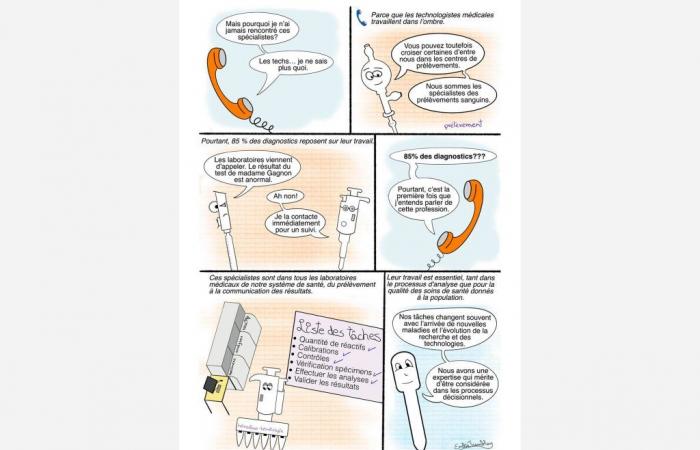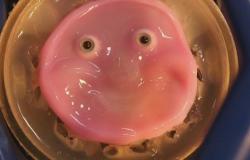Last May, doctoral student in communication Emilie Tremblay (MA communication, 2019) was on rue Saint-Denis, a few steps from her boards displayed as part of the Montreal BD Festival. “A person was going through them. I was really moved,” says the researcher… and apprentice cartoonist!
In the fall of 2023, the researcher participated in the third edition of the Vulgarisathon, organized as part of the Acfas Emerging Research Days. “The Vulgarisathon is an activity aimed at producing a work of popular science in the form of a comic strip, a radio broadcast, an article on Wikipedia or an artistic issue,” explains the doctoral student, who is registered there in extremis after speaking with one of the event organizers. “My last art class was in high school,” she says with a laugh, “but I felt I had to explore this vein.”
A little-known profession
Emilie Tremblay devotes her thesis to the issues experienced by medical technologists, a little-known profession that she practiced for around ten years in Montreal.
The first board created by Emilie Tremblay.
Courtesy of Acfas
“In addition to carrying out analyzes and examinations in the field of medical biology and ensuring the technical validity of the results, medical technologists take samples and administer medications and substances for analysis purposes. Their mission is to facilitate and make medical diagnoses more reliable,” she explains. A crucial role when we know that established diagnoses rely heavily on laboratory results.
“Throughout my journey, I was thinking of the issues experienced by my former colleagues. Their fate was close to my heart, I wanted to tell their stories.
Emilie Tremblay
PhD student in communication
At the dawn of her thirties, despite her status as a single parent, Emilie Tremblay decided to change her life. “The reorganizations of the environment and the new work context no longer suited me,” she says. She enrolled for the baccalaureate, then the master’s and the doctorate. “Throughout my journey, I was thinking of the issues experienced by my former colleagues. Their fate was close to my heart, I wanted to tell their stories. This is why I dedicated my dissertation and now my thesis to giving them better visibility.”
A thesis in two parts
In the first part of her thesis, Emilie Tremblay will present three significant events in the history of the profession, including the merger of 34 hospital laboratories into 12 service areas spread across the territory of Quebec, a project called Optilab, deployed in 2017. “The government created these zones to centralize analyzes and save on material and human resources,” she explains. These changes required a significant reorganization of workstations within the profession, causing a lot of discontent.
The second board created by Emilie Tremblay.
Courtesy of Acfas
In the second part, the researcher will focus on the effects of these organizational restructurings on the relationships and relationships of medical technologists with their colleagues and other professionals.
The creation of Madame Pipette and her colleagues
Following the interviews she conducted with medical technologists, Emilie Tremblay retained a striking example. “A participant explained to me that when she buys a pipette – one of the instruments that is used a lot in the profession – she asks each of the people likely to use it where they should store it, as a matter of ergonomics. One summer day when I could no longer write, I started drawing… pipettes!”
At the Emerging Research Days, Emilie Tremblay had her drawings with her, but she didn’t know what to do with them, she continues. “When I saw the poster for the Vulgarisathon, I knew I had to participate. This is how Madame Pipette was born, the character I created to tell the story of the profession of medical technologist, and all her colleagues.”
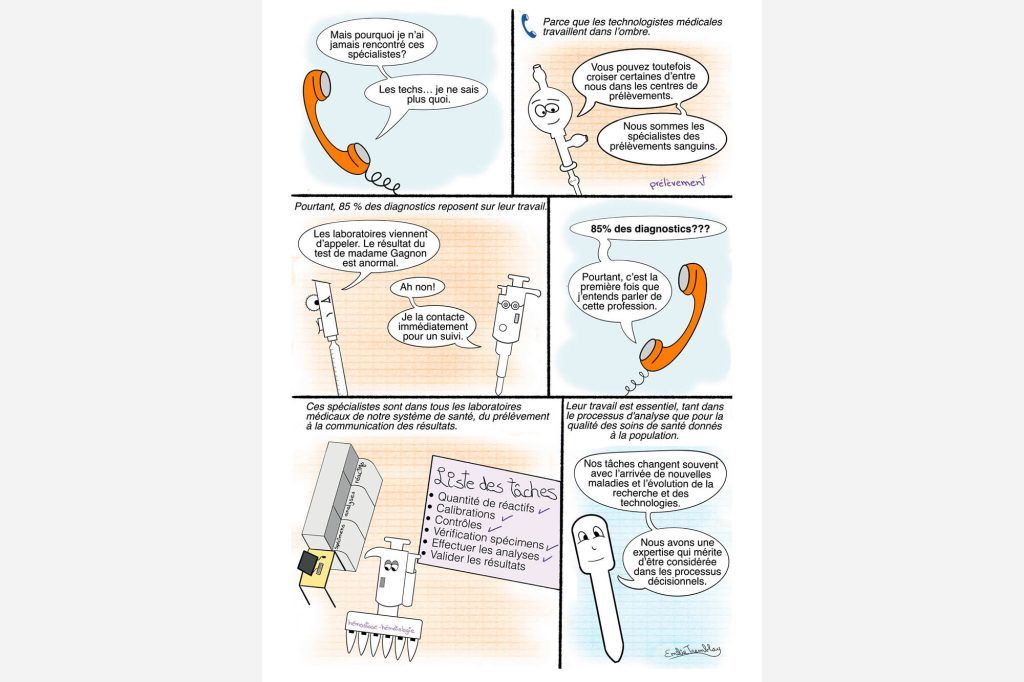
The third board created by Emilie Tremblay.
Courtesy of Acfas
The seven participants in the comics section of the Vulgarisathon benefited from basic training in drawing and scriptwriting, in addition to monthly support between October and January in order to carry out their project.
Emilie Tremblay handed in her three boards at the end of January. The first concerns the effects of the creation of Optilab on the health system, the second on the work context, and the third on the nature of the work of a medical technologist.
A visual complement to his thesis
Emilie Tremblay loved participating in the Montreal BD Festival, which brought together more than 95,000 fans in three days. “Technologists wrote to me to tell me that it represented their work well and that they were happy that someone was giving visibility to their profession,” says the woman whose creations have also been published since the month of June, on the Acfas website.
The doctoral student plans to integrate her plates as well as other drawings into her thesis in order to illustrate her point. “I even created an Instagram account, Madame Pipette and her colleagues. From now on, Madame Pipette accompanies me in all the conferences in which I participate,” she concludes.

